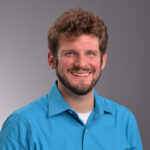Apocalypticism
Syllabi - Topic: Apocalypticism - 11 results
Select an item by clicking its checkboxA 2005 course by James Kelhoffer at Saint Louis University offers a "survey and analysis of early Christian apocalypses and their literary precedents in Jewish apocalypses and apocalypticism."
A 2007 course taught by Russell Morton at Ashland Theological Seminary offers a "close exploration of Revelationâs challenge to first-century believers in Asia Minor will lead to discussion of its ongoing challenge and encouragement to churches."
A 2013 course by Robert Kawashima at the University of Florida on apocalypticism which entails "a new literary form . . . And . . . a new way of viewing reality."
A 2003 course by Michael Clark at Warren Wilson College surveys "literary/cultural features and motifs of biblical apocalypse texts . . . Various postbiblical apocalyptic communities and /or events over history . . . [and] how apocalyptic thinking continues to shape 20th and 21st century ways of being in the world."
A 1998 course by Liza McAlister at Wesleyan University "examines various American eschatologies and the religious communities that imagine them."
A 2011 course by Katherine Rousseau at the University of Colorado Denver presents "different ways of understanding apocalyptic imagination: as a literary genre; as a form of group behavior; as a historical and social phenomenon; as political-religious commentary; and as a means of persuasion."
A 2013 course by Brad Starr at California State University-Fullerton "explores the development, context, variety, forms, and consequences of religious apocalyptic and millennial expectations."
A 2017 course by Michael Kuykendall at Gateway Seminar "is an introduction to the primary literature, theology, and message of the apocalyptic genre, with specific emphasis placed on the book of Revelation."
A course by Mark Given at Missouri State University is a "historical and socio-rhetorical analysis of ancient Jewish and Christian apocalyptic movements and literature with some attention to modern examples."
A course by Catherine Wessinger at Loyola University New Orleans seeks to "understand the diversity of religious patterns that scholars have termed millennialism, the expectation of an imminent transition to a collective state of salvation either earthly or heavenly;" special empasis on "recent and contemporary movements" and cross-cultural perspectives.
A 2014 course by Phil Harland at York University "investigates the origins, development and legacies of apocalypticism within Judean culture and early Christianity. . . . . [it] will also survey the legacies of apocalypticism in religious movements, popular culture (including music and film), and artistic representation to the present day."

